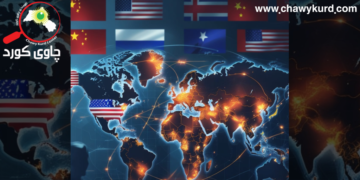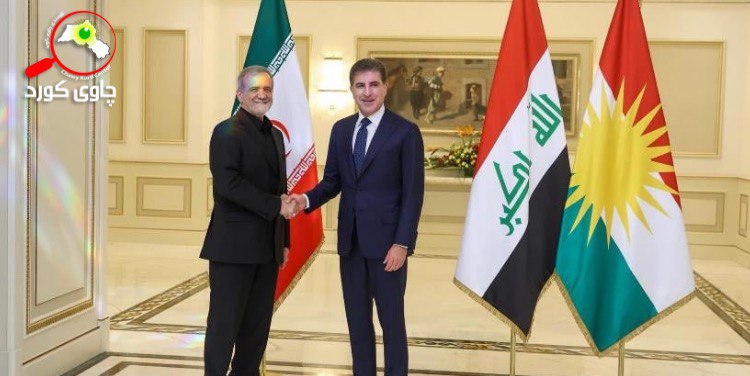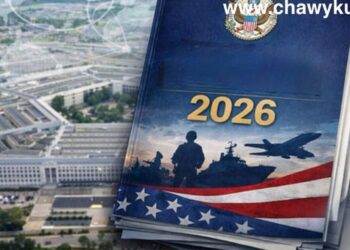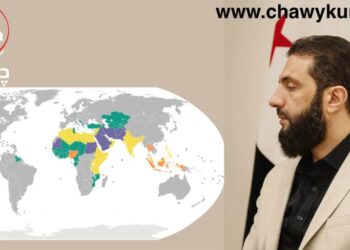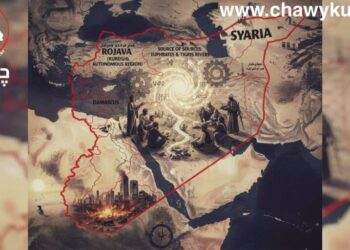In the second week of this month, Iranian President Massoud Pezeshkian began his first foreign visit to Iraq since taking office in late July, visiting the Kurdistan Region and several other Iraqi cities. It is significant to redefine political, economic and social relations between the two countries.
The visit was replaced a visit scheduled for former Iranian President Ibrahim al-Raisi, who was scheduled to visit Iraq three days before his sudden death. Viewers see the visit as a vital beginning to start a new stage in relations between Iran and Iraq. Political analyst Imad Masfir emphasized that Pezeshkian visit is very essential at this time, due to the situation in the region and the continuing international crises, including the Israeli-Gaza war and the geopolitical importance of Iraq, which “reflects a common position on regional issues, including the Palestinian issue. Meanwhile, political analyst Mohammad Mahdi told Shafaq News that the Iranian president’s visit to the Kurdistan Region and meetings with the two main political parties in Kurdistan; “This shows Iran’s commitment to deepening relations with all communities of the Iraqi people in general and the Kurds in particular,”.
Pezeshkian’s visit and its influence on Iraq, the Kurdistan Region and the region in general:-
1-Security aAspects of the visit: – The visit comes at a complex time, taking into account the ongoing security tensions in the Middle East, including the conflicts in Gaza and Yemen and the impact of US forces in Iraq on regional stability and security issues. In fact, Iran is concerned about the presence of US troops in Iraq, and opposes the activities of Kurdish opposition groups in the Kurdistan Region. The visit also discussed the implementation of a security agreement signed between Iraq and Iran in 2023, which provides for the disarmament of these groups and their transfer to areas far from Iran’s borders, which will strengthen Iran’s control over border security.
- Strengthening Economic Relations: Economic issues were an important part of the visit, because Iran, which suffers from US economic sanctions and some Western countries, is trying to expand trade with Iraq and the Kurdistan Region, as we know that non-oil trade between Iran and Iraq during the first five months of 2024 reached $5 billion, reflecting Iraq’s importance as one of Iran’s most important trading partners in the region.
- Political relations and regional cooperation: The visit shows Iran’s desire to improve relations with Iraq and Kurdistan to deal with the growing regional crises, as it is obvious that this visit comes at a time when Iraq is indirectly affected by the Israeli-Palestinian conflict in the Gaza Strip. This is during a time that Iran seeks to build a strong alliance with neighboring countries to counter US pressure, especially on the withdrawal of US troops from Iraq. “Tehran is very pleased that the Iraqi parliament has approved a draft law calling for the withdrawal of US troops from Iraq,” Iranian Foreign Minister Abbas Araghchi told Iraqi media.
- International Implications: At the international level, Iran is trying to reduce the persecution that suffers as a result of sanctions imposed on especially by the United States. In this regard, relations with Iraq and the Kurdistan Region provide an economic and security outlet for Iran which can help mitigate the effects of sanctions. Iran’s presence as a major player in Iraq could also be an obstacle to US moves in the region, which is what the Iranian president clearly pointed out in his speech on the importance of regional cooperation to counter “external pressures”.
Finally, it can be said that; the visit of Iranian President Masoud Pezeshkian to Iraq and the Kurdistan Region is considered a strategic step aimed at; through this visit, Iran is trying to achieve security stability in the region and strengthen economic relations with its neighbors, thus strengthening its regional position and reducing the impact of sanctions imposed on it. Therefore, this visit is expected to have an important impact on the future of relations between Iran and Iraq, as well as on the stability of the region in general.













